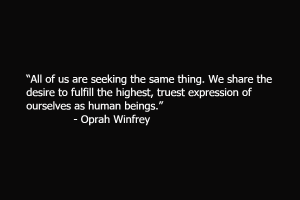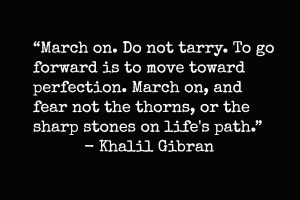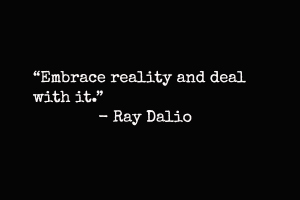 Prologue
Prologue
Ottawa, six years ago
THIS WAS IT. THE moment he’d been preparing for his entire life. The end of introspection and self-flagellation. Yet it felt … surreal. He still didn’t believe it was happening, despite the evidence around him. The boxes stacked around the room. The walls stripped bare, dotted with holes where the IKEA print of New York taxi cabs, and framed photos of Toni Morrison and his other celebrity friends used to hang.
He remembered every moment that had played out here. He remembered the laughter. He remembered collapsing onto the chocolate-brown leather sofa as he read, and reread, the letter confirming his first novel had been accepted for publication. He remembered the sweaty, breathless sex on the sofa, the floor, in the shower. Rarely the bed. A past he’d carry close and into the future.
Yes, this was it. The moment when he felt, finally, like he’d become a man.
The commotion outside broke his reverie. Malachi Bishop bounced off the sofa, crossed the room and pushed open the balcony doors. The thumping music, the shouting and the skunky smell of burnt leaves rushed at him. Proof that it was Friday night and all bets were off. He couldn’t wait to be free from it all.
Jenna, Malachi’s silver-haired neighbour, leaned over her railing. “I’m tired of you druggies acting like you’re the only ones who live here!” she barked. “You need to learn the meaning of respect.”
“Respect this!” a guy with blue hair shouted back from the balcony below and flipped her the bird.
“Oh, no you didn’t…” Jenna stood up straight. “That’s the final straw. Now I’m calling the police.” She turned to go inside but froze when she spotted Malachi. “Do you believe those two?”
Malachi, watching the scene unfold below, stepped back from his balcony’s railing and raised his hands defensively. His message was clear: leave me out of it.
“This is a good, family-oriented neighbourhood,” she lamented. “Or at least it was until those jackals moved in.”
“We’re on our balcony,” the blue-haired guy spat. “We can do as we fucking please.”
“And the language,” she said, indignant.
His fellow ‘jackal’ turned around slowly, blew out a large cloud of smoke and looked up. “Hey, Malachi! You wanna come down for a drink?”
Malachi bristled. They’d never been introduced, so how did the guy know his name? Despite how ‘liberal’ Malachi considered himself to be, he didn’t voluntarily associate with guys who had tattoos covering their arms and multiple piercings. Did he read my book? Is that how he knows me? Not really knowing what to say, Malachi swallowed hard. When he caught the woman’s accusatory look, as if he were in collusion with their free-spirited neighbours, he grimaced. “No. No, thanks. I’ve got some work to do.” He raced back inside, sliding the balcony doors closed with an unintentional bang.
He returned to the sofa and chuckled. He could still hear his disgruntled neighbour repeating her threat to call the police, that was until the music was cranked up even louder. He tried to block it out as he packed up the DVDs piled on the coffee table. Just then the phone rang and he jumped. He raised himself up slightly and reached for the phone wedged between the DVDs and a stack of literary journals. “Hello,” he said, falling back into the sofa.
“I’m running late,” Taylor Blanchard said.
“Where are you?” Malachi asked.
“Still at the office. I started reading your book after my last class and I haven’t been able to put it down. God, Damien is a freakin’ prick. I don’t understand why Ryan hasn’t left his sorry ass.”
They laughed.
“Hurry,” Malachi said.
“I will. I’m almost done with this chapter. I should be home in about twenty minutes. But is everything all right?”
“Yes. I just can’t wait to see you.” Even after three years of dating, they still acted like new lovers who couldn’t get enough of each other. That first kiss when Taylor arrived home from work set off an atomic explosion of passion that had them naked almost instantly. They talked with an intimacy that, in many ways, scared them because neither of them had felt so connected to anyone else before.
“I’ll hurry,” Taylor said.
That made Malachi laugh. Ever since their first date, Taylor was always running late. It turned out to be a good thing. Malachi learned to practice patience.
“Should I pick something up for dinner?” Taylor asked.
“No. Well, maybe.” Malachi paused. “It depends…”
“Depends on what?” Taylor sounded concerned.
“Your mother called,” Malachi said quickly, as if expelling some evil force.
“What’s the crisis this time?”
“No crisis. She’s invited us over for dinner.”
“Tonight?” Taylor sighed. “I’ll call her. I’ll say we already have plans.”
“That’s what you told her last week,” Malachi said, curbing his urge to laugh.
“You want to have dinner with my mother? Fine. But we’re not telling her we bought a house.”
“You and your mother have too many secrets.”
“You’ve met the woman, right? I didn’t imagine that.” There was a brief silence. “You know what she’s like, and I’m not in the mood for the great inquisition. ‘A house? How can you afford a house? What bank would give you a mortgage? I still don’t know how you afford the car…’ Christ, my ears are already ringing.”
Malachi grinned. “She might surprise you.”
“God, you’re cute.” Taylor chuckled. “And I love you.”
“Now you’re changing the subject,” Malachi said coolly.
“Yes, I am. I’ll be home soon. We can talk about it then.”
“Yes, we will.”
“See you soon, beautiful man.” Taylor hung up.
Malachi tossed the phone back onto the coffee table. It was a week after the publication of his second novel, and they were excited about their recent home purchase. It took them five months to find the perfect house. Some were too small, most were too expensive, and the rest were too far from the city. And then they struck gold — a three-bedroom house on Regent Street in the section of town known as the Glebe. Immediately they saw themselves laughing and sharing Malachi’s famous veal scaloppini and sweet potato gnocchi with their friends in the cosy dining room. It’d be so easy for them to manoeuvre about the airy kitchen as they cooked together. Then every evening wrapped up in each other on the sofa in the spacious living room. They’d each have their own office, and everything else they’d need — banks, coffee shops, grocery stores — were just minutes away on foot. Perfect. It was just perfect.
He smiled as he thought about Taylor and how he’d let himself be swept off his feet. He loved the way Taylor searched him out when he came home, taking him into his arms in a crushing embrace. His protector. His strength. His refuge. Malachi loved the way Taylor looked at him as though he was the only person in the world who mattered. He loved the tenderness of Taylor’s touch, his spirit of generosity, his patience.
When it came to Evelyn Blanchard, Malachi thought Taylor needed to engage some of that patience. He’d lost his own mother even before she died. He let go of her without making any attempt at reconciliation. Taylor, if he were open to it, had the chance to be better than him, to not let silly misunderstandings separate him and his mother. Then again, perhaps Malachi would have been just as annoyed if his mother had dotted over him the way Evelyn did Taylor. What would it be like to be the sole, and beloved, prodigal son? Malachi cringed.
His eyes roamed the books, stacked on the floor next to the coffee table, which he’d yet to pack. Sometimes it felt like a dream, but he knew this was real. He’d been caught up in his studies when Taylor came into his life and turned his world upside-down. Living in Ottawa, Malachi did what everyone else did. He joined the civil service and tried to shape a career he wasn’t sure he wanted. All the while he kept writing, and Taylor championed his work. As he searched for meaning in a world filled with competing priorities, Taylor let him know what was truly important. When he was paralysed by long periods of self-doubt, Taylor reminded him of his worth. He needed that gentle handling now, especially after reading Jason Miller’s harsh review of his novel in the local paper: Bishop’s rushed follow-up to his greatly overrated one-hit wonder, All I Do Not Know is True, is little more than a pretentious, predictable money grab. Clearly, Bishop is more concerned with proving how smart he is than in telling a good story. He longed for Taylor to walk through the door and take him into his arms, hold him safe … and maybe even track down Jason Miller and slash his tires.
This apartment … it was where his adult life began on that humid August day when they’d moved in and built a home together. Sweaty and exhausted from hauling furniture up three flights of stairs, they sat on the sofa eating a Domino’s pizza and sharing a bottle of Black Tower riesling. They were nervous, like on their first date, and uncertain as to what the future would bring.
“I love you very much,” Taylor had said and reached for Malachi’s hand.
The declaration stunned Malachi into silence, but not because he didn’t believe it. It wasn’t the first time Taylor had said that, but this time it was how he said it — with absolute conviction. He meant it. That was the moment Malachi realized he’d never love another man. “I love you, too,” he said, the words coming easily. From that moment came a simple truth: Taylor was his life. All that mattered was making Taylor happy. He didn’t care if that meant always doing the laundry or getting up at four in the morning to write so they could spend as much time as possible together.
Malachi realized that the blaring music had stopped. He sat up straight and glanced at his watch. It was quarter to seven, and Taylor should have been home by now. He picked up the phone and dialled Taylor’s office number at the university. No answer. Then he called Taylor’s cell. Again, no answer. He moved off the sofa and crossed to the window. He looked down into the street and saw a police cruiser pulling up to the curb. He smirked. Jenna finally had the nerve to call them. He watched the officers get out of their vehicle and enter the building. He looked up and down the street. It was empty. Where was Taylor?
He jumped at the knock on the door. Had Taylor forgotten his keys again? He rushed to the door and opened it. “I was beginning to worry…” He froze. Two grim-looking men — the police officers who he’d seen just moments before — gave their names and asked to enter the apartment.
Inside, the shorter man spoke first. “How are you acquainted with…” He paused to look at his black notebook. “Taylor Blanchard?”
“He’s my fiancé,” Malachi said with a slight edge. They’d talked about getting married, but neither of them had proposed.
“There’s no easy way to do this,” the officer continued. “There’s been an accident…”
Malachi heard the words but they instantly fell away. Something about Elgin Street, a car and two pedestrians. Investigators were still on the scene. Taylor had been hit first and succumbed to his injuries on the way to the hospital.
“I don’t understand,” Malachi said, feeling himself trembling. “I just talked to him … not even an hour ago. He was on his way home…” Tears filled his eyes and raced down his cheeks.
“I’m sorry for your loss,” the other officer said.
“He lost consciousness almost immediately,” the first officer said. “The pain … he wouldn’t have suffered long.”
“You’re mistaken. I mean…” Malachi could feel his legs about to give out on him, and before he could move to the sofa he collapsed to the floor. When he woke up, one officer was kneeling over him, the other radioing for an ambulance.
“Don’t move. Help’s on the way.”
He couldn’t move as he thought about the plans they’d made for the future. They’d talked about hosting Taylor’s family at Christmas in their new home, and visiting Paris the following summer. Suddenly, the man who was his saving force — a champion of his writing, his confidant, his best friend — had been plucked from his grasp.
How was he supposed to live without the man who’d taught him what love was all about?
Find out on October 10, 2018. Pre-order your copy today!

 But there’s a lesson in every situation. My takeaway is this: be sure that, wherever we are on our life journey, that we’re doing what we love. Now is the time to do it, because if we keep putting it off, we’ll never achieve the thing we feel we must do. We’ll never — and I love how
But there’s a lesson in every situation. My takeaway is this: be sure that, wherever we are on our life journey, that we’re doing what we love. Now is the time to do it, because if we keep putting it off, we’ll never achieve the thing we feel we must do. We’ll never — and I love how  Letting go of my need to be perfect all the time sounds great in theory. Translating it into action is something else altogether. I get the point so many are trying to make. When we show up to practice our craft, the repetition of the habit will help us to hone our skills, learn from our mistakes and become better at what we do. That’s why I write every day. But sometimes we spend so much time trying to perfect one thing that we ‘stall.’ We really don’t move forward. As a writer, I don’t want to spend my life trying to write one perfect book when I could, hopefully, write many. And then my goal would be to make each book better than the one that came before it.
Letting go of my need to be perfect all the time sounds great in theory. Translating it into action is something else altogether. I get the point so many are trying to make. When we show up to practice our craft, the repetition of the habit will help us to hone our skills, learn from our mistakes and become better at what we do. That’s why I write every day. But sometimes we spend so much time trying to perfect one thing that we ‘stall.’ We really don’t move forward. As a writer, I don’t want to spend my life trying to write one perfect book when I could, hopefully, write many. And then my goal would be to make each book better than the one that came before it.

 The first thing I had to do was look at the reality before me and find a way to deal with it.[note]For me, perhaps the hardest principle I’m struggling with from Ray Dalio’s book is “Embrace Reality and Deal with It,” Principles, Simon & Schuster, 2017, p. 132.[/note] The reality before me is this: I feel stuck in a job that I’m not passionate about, but it gives me 13 days off a month. On the surface, that looks pretty good, having so much time off. But the demands of the job leave me exhausted, disrupt my sleep patterns, make me more prone to illness and, consequently, impact my productivity when it comes to writing. That’s also part of the reality.
The first thing I had to do was look at the reality before me and find a way to deal with it.[note]For me, perhaps the hardest principle I’m struggling with from Ray Dalio’s book is “Embrace Reality and Deal with It,” Principles, Simon & Schuster, 2017, p. 132.[/note] The reality before me is this: I feel stuck in a job that I’m not passionate about, but it gives me 13 days off a month. On the surface, that looks pretty good, having so much time off. But the demands of the job leave me exhausted, disrupt my sleep patterns, make me more prone to illness and, consequently, impact my productivity when it comes to writing. That’s also part of the reality.